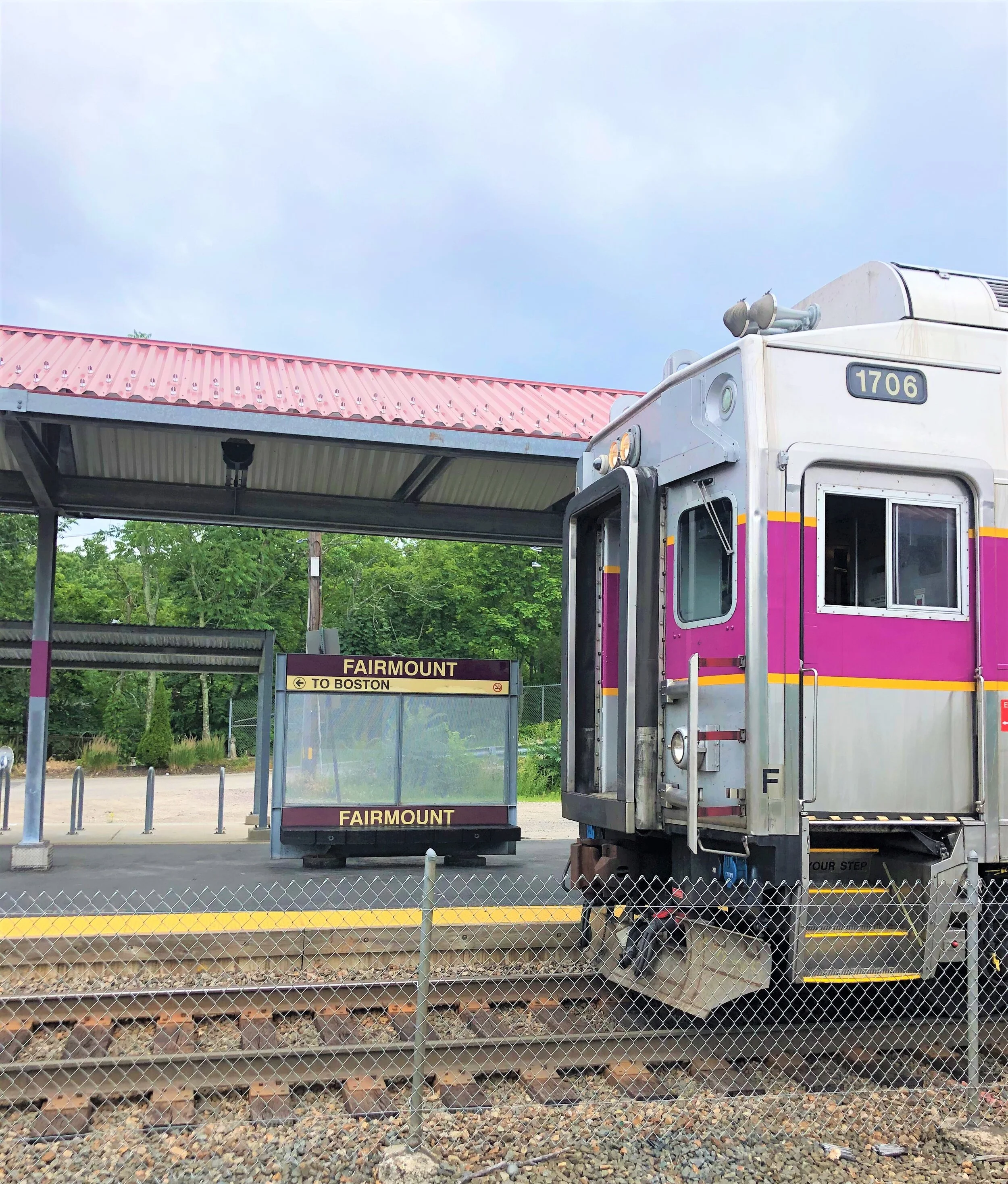Fairmount Indigo Transit Equity
Fairmount Indigo CDC Collaborative
The Fairmount Indigo CDC Collaborative, founded in 2004, includes Southwest Boston CDC, Codman Square NDC, and Dorchester Bay EDC, which for over 15 years has worked with the Fairmount Indigo Transit Coalition to win $200M for 4 new stations, fares lowered to T levels, increased daily trips, and extended service to evenings and weekends. We still push for the Readville commuter fare, over $6, to be reduced to MBTA transit levels like the rest of the corridor.
Special Protection Zones
The CDCs second goal was to acquire sites early for mixed income housing development, knowing that new stations lead to speculation and displacement. The CDCs acquired land and completed or are in pre-development on over 1000 units since 2004. Southwest Boston CDC also works with POHWER and other neighborhood organizations to protect a 1 mile area on either side of the Fairmount Line from gentrification, evictions, and speculation. We advocate for re-zoning our train station areas into Special Protection Zones, SPZs, to allow more density at stations, more income mix in developments, require less parking, and an amendment of Article 91 to require remediation, limit speculation, and special “just cause” standards for tenants to negotiate with speculative buyers, all under review by the City Council
Additional Anti-Displacement Proposals
Through these efforts we hope to prevent displacement of current community members and expand the number of truly affordable homes throughout Hyde Park, Roslindale, and nearby.
a proposed real estate transfer tax in the city could also slow predatory sales and flipping,
permit tax breaks and other abatements to property owners who keep rents affordable.
increase capital pools for both land trusts and other non-profits.
find or increase subsidies for the most at-risk families; halt evictions during coronavirus.
advocate for syncing buses with trains to ensure early mornings and late-night access.
establish a “good job standards” as a minimum for all new developments with public funds.
create access to city-wide ‘good jobs’ ($35K/year with benefits) targeted to corridor residents. Use city-wide “1st source” programs run by local community organizations.
